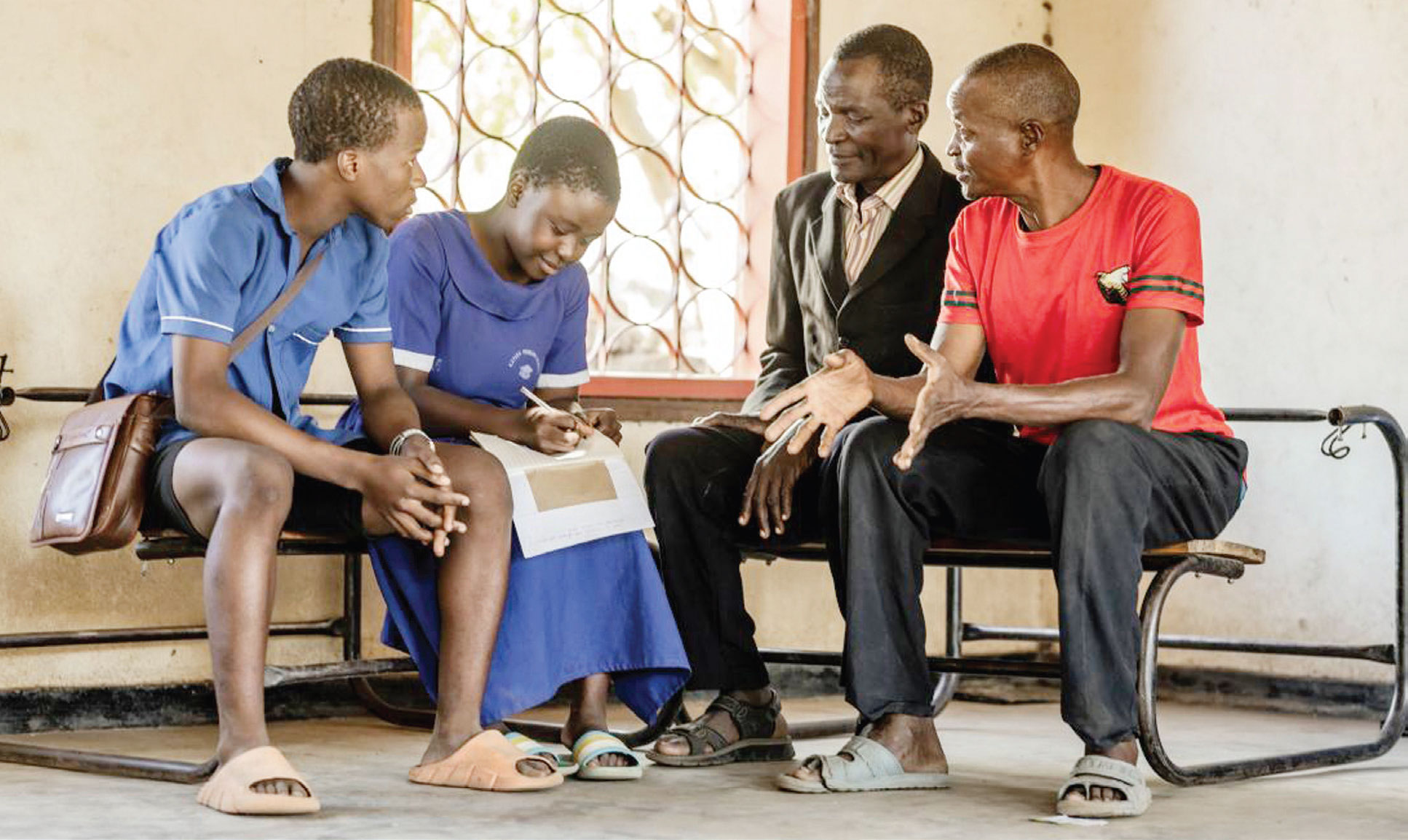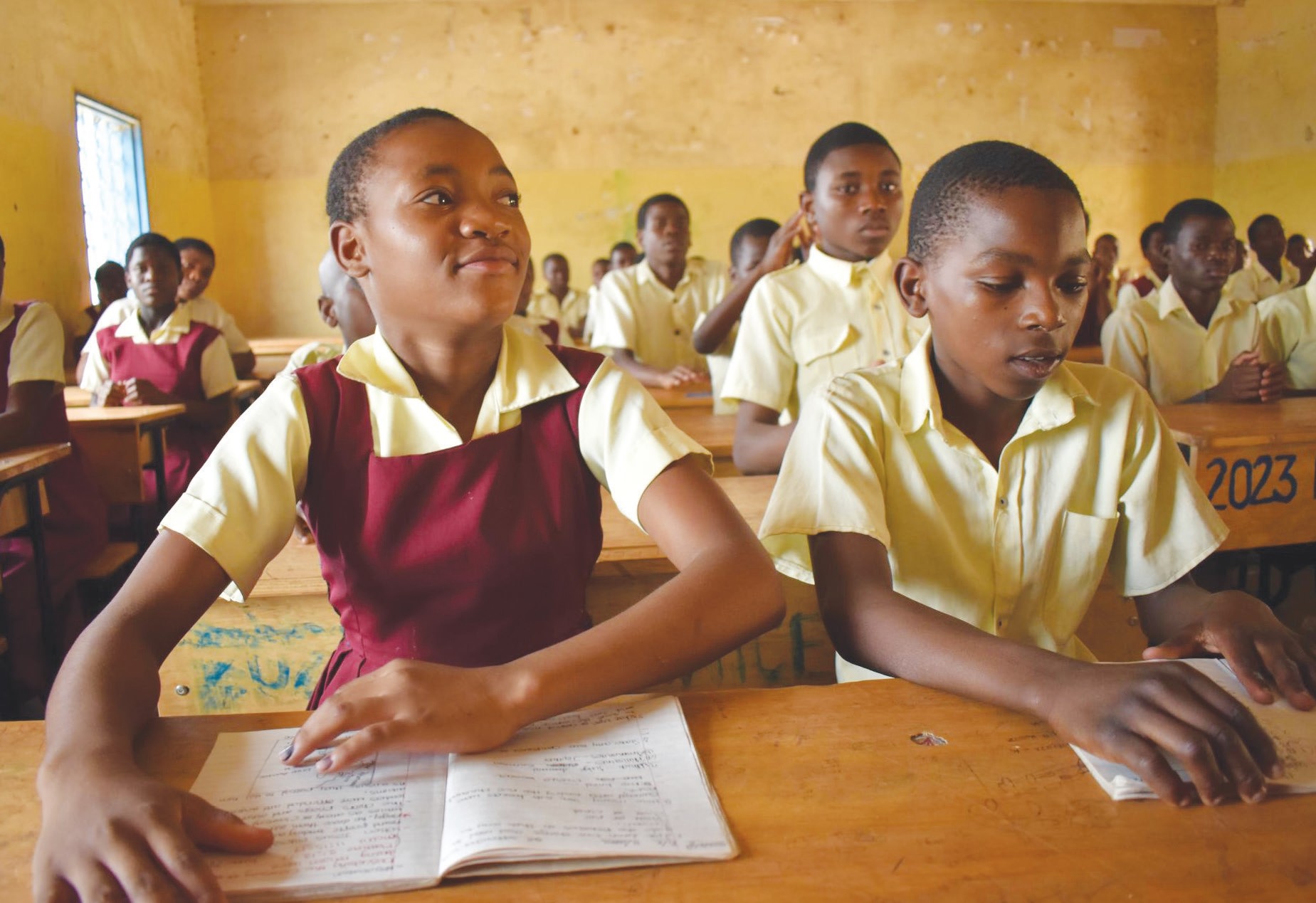Killing the future in its infancy
 Early childhood development (ECD) represents the nation’s root of development. Different nations, as a result, prioritise it as a key element in their development priorities. But how does Malawi value ECD? Ephraim Nyondo begins to find out.
Early childhood development (ECD) represents the nation’s root of development. Different nations, as a result, prioritise it as a key element in their development priorities. But how does Malawi value ECD? Ephraim Nyondo begins to find out.
Eighty percent of human brain development, experts say, happens in the first four years after conception.
This means, the kind of training a child receives in these formative years is critical in shaping who one becomes.
This explains why most developed countries invest heavily in early child development (ECD) which—according to Dr. Foster Kholowa, ECD expert at Chancellor College—encompasses interventions that promote physical, emotional, cognitive, social and spiritual aspects that aims to prepare children for formal schooling and productive adult lives.
“Most ECD training covers from conception to when a child attains the age of eight,†he adds.
Indeed, no child in development countries enrols for primary education without ECD training.
Does this not explain the reason children from developed countries always appear clever and sharp?
In Malawi, 35 percent of the 2.7 million children under the age of five do not receive formal early childhood training.
They receive informal training through informal pre-school outlets like Sunday schools, Madrassas, nutrition rehabilitation units and paediatric wards, among others.
“The challenge with these informal outlets is that they are not holistic in approach. They only cultivate few aspects in the child,†says Dr Kholowa.
Unfortunately, out of the 35 percent that receive formal ECD training in the country, a few have access to good quality training which would lead to their active participation in national development, as advanced in the National Policy on Early Childhood Development.
Across the country, formal centre-based ECD training is offered both through private and public outlets.
Chinawamba Early Child Centre in Nancholi, Blantyre, is one such.
The facility has three blocks, each with two classes. The buildings are well ventilated, roofs well corrugated by iron sheets. The surrounding outside is child friendly: There are see-saws, child paintings, a playground and there are a lot of dolls, and child playing materials.
“We have 300 children here,†says Regina Chingani, one of the teachers.
She holds a Malawi School Certificate of Education (MSCE) and has attended several ECD trainings.
At Chinawamba, children as young as four speak English and are quite sociable.
They can tell you their dream cars, their favourite TV programmes, their dream jobs, can recite verses in the Bible, and also tell you, in detail, biblical stories.
The challenge, however, is there are few such ECD centres in the country and most of them are in urban areas. Even worse, access to them, even if they could be rampant, is limited to the privileged.
“Parents and guardians pay K90 000 per term as fees,†says Chingani.
Some centres, similar to Chinawamba, even go up to K120 000. As a result, children from low-income families are forced to enrol in unregistered nursery schools taught by untrained teachers, hidden in populous townships in the country’s urban and rural areas.
But the majority of children in rural areas receive ECD training through community-based childcare centres (CBCC), which are run by the community.
Established in the late 1990s with support from Unicef, CBCCs are community structures created by communities to provide a holistic, quality care and support to children. Currently, there are almost 3 000 CBCCs across the country.
“Most ECD training in the country is in the hands of CBCCs,†says Charles Gwengwe, executive director of Association for Early Child Development (AECDM).
The question, however, is: How good is the training in the CBCCs? Do children receive the quality training as advanced in the country’s policy on the same?
The story of Gomani CBCC in Gomani Village, Sub-T/A Mkando in Mulanje, gives a better ground for analysis.
It is Thursday morning; time has just clocked 8, and I am standing outside Gomani CBCC structure.
It is a small shelter built with everything grass. In fact, some of the planks supporting it have visibly waned due to ceaseless attack of termites.
There is no sight of a latrine close by, not even a water drinking point, not even a see-saw or anything that children play with to stimulate their brains. It is simply a shack. And when there is nobody close, as it was that day, it appears desolate.
After a thirty-minute wait, a child, of about four years, cropped in. He was carrying a small plastic cup.
“I am John Mwahika, I live there,†says the boy in Chichewa while pointing at a house standing about 400 hundred metres from the CBCC.
In an hour, the place was littered with children. The caregiver arrived some time later.
“I am Janet Musinza, a caregiver here,†she says, while shouting instructions to the children to enter into their class.
She is one of the three volunteer caregivers teaching about 62 children aged between three and six at the CBCC. All the children learn in the same class.
“Classes are supposed to begin at 8. But it is not easy to maintain time because you have a number of issues at home to attend to before you come here,†says Musinza, 32, who is married and has three children.
She admitted that she is yet to attend training on ECD. Of course, 54 percent of caregivers in the country are untrained. Not only that. Most of them have never heard of a curriculum on ECD.
“I was chosen by the community because they know I reached Form Two. Basically, the training here is about instilling good societal values in these children,†she says.
She teaches them about God and the devil, to kneel down when talking to elders, and then the children are left to play before they take tea. They go home at eleven.
Musinza does the work on voluntary basis.
“It is frustrating, of course; especially when people mock me for being passionate about things I don’t get paid for,†she says.
Of course, some might suggest that the story of Gomani CBCC is an exception. It is not. It is a story shared by a number of CBCCs across the country.
The question this begs is: Are CBCCs in their current set-up an answer to the country’s quest to nurture our children’s brain development so that they grow into productive citizens?
Surely, the current ECD set-up in the country—judged from the percentage of those not attending it and also the poor training those attending receive—is akin to a nation which is killing its future in its infancy.
Next: Given the troubled nature of the current set-up of ECD, what is Malawi, as a nation, losing today and in the long run?





